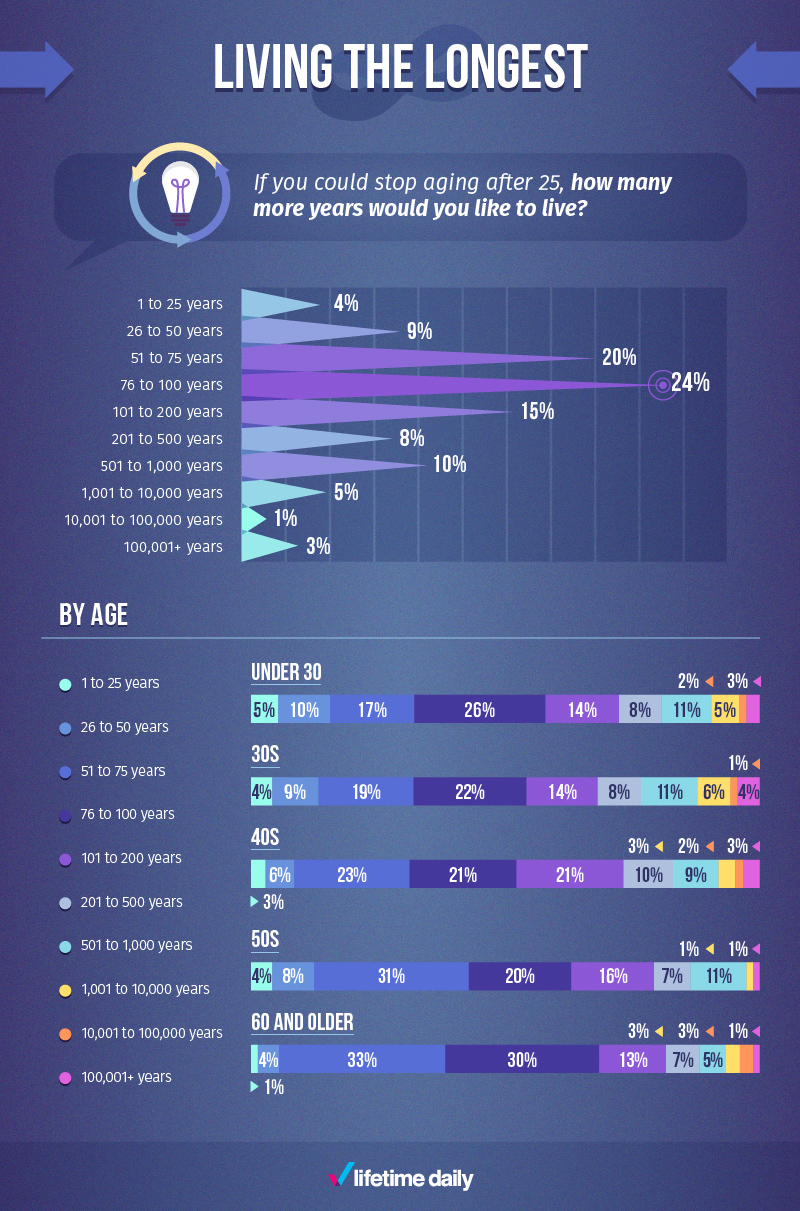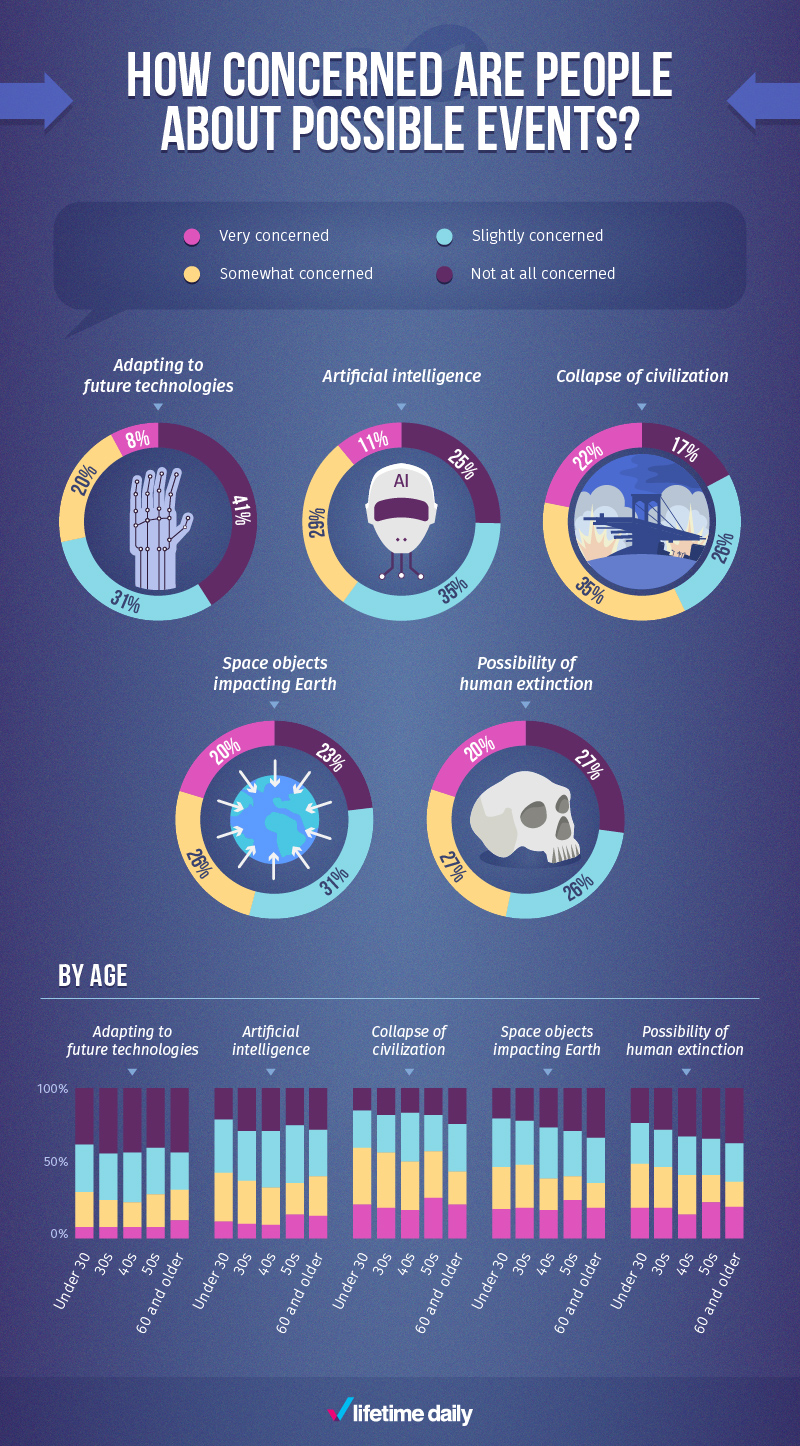The average life expectancy in Canada is about 82 years old, according to The World Bank. But if you had a choice, would you want to live longer – and if so, how much longer would you want to live?

And perhaps more importantly, what would you want to do with all that extra time?
Health and wellness website Lifetime Daily asked 2,000 Americans just that and more on the topic of life and longevity in a survey.
READ MORE: Why living longer than 85 years will be common by 2030
When asked how many more years they would like to live if they could stop aging after 25, survey takers revealed they had a threshold and limit.
It turns out the majority of people don’t actually want to live forever – only 57 per cent say they’d only want another 100 years or less.
- WestJet execs tried cramped seats on flight weeks before viral video sparked backlash
- Pizza wars? As U.S. chains fight for consumers, how things slice up here
- Health Canada says fake Viagra, Cialis likely sold in multiple Ontario cities
- Flu numbers in Canada remain high but trending down after winter holidays
Breaking the numbers down even further, the age group that is more likely to ask for 51 to 100 more years are those 60 years of age or older.
Bowes and the team speculate this may be because as people age, they tend to think of time as more precious than their younger counterparts.
However, men are more likely to want to live longer than women. In fact, only 28 per cent of women are happy with another 51 to 75 years while 25 per cent are happy with 76 to 100 more years.
Men, on the other hand, begin to take the lead in every other time category afterwards. For example, 16 per cent of men would like 101 to 200 more years (compared to 14 per cent of women). Men take the biggest lead when it comes to wanting 501 to 1,000 more years (13 per cent men versus 7 per cent women).

Get breaking National news
As for what circumstances would prompt people to want to live longer, 79 per cent say they would want to if they had to work the entire time. This is followed by 73 per cent who say they would want to outlive everyone except for their family.
And with all that extra time on people’s hand, 13 per cent say they would want to experience more of life in general, as well as travel more. This was closely followed by 12 per cent of people wanting to see new technologies and scientific breakthroughs.
It was Jim Morrison, front man of the rock band The Doors, who once sang, “The future is uncertain but the end is always near.”
It may not be the most uplifting lyric out there, but nonetheless it sums up what survey takers think of the future.
According to the results, people are most concerned about witnessing the collapse of civilization, followed by space objects impacting Earth and the possibility of human extinction.
Don’t worry though because there’s still plenty of time left on Earth – about 7.5 billion years to be exact. Then the sun expands, engulfs and destroys Earth and all life on it, at least that’s what University of Sussex astrophysicist tells Business Insider Australia (that’s if the planet isn’t swallowed up by a black hole, taken over by aliens or hit by a giant asteroid first).
Graphics courtesy of Lifetime Daily












Comments